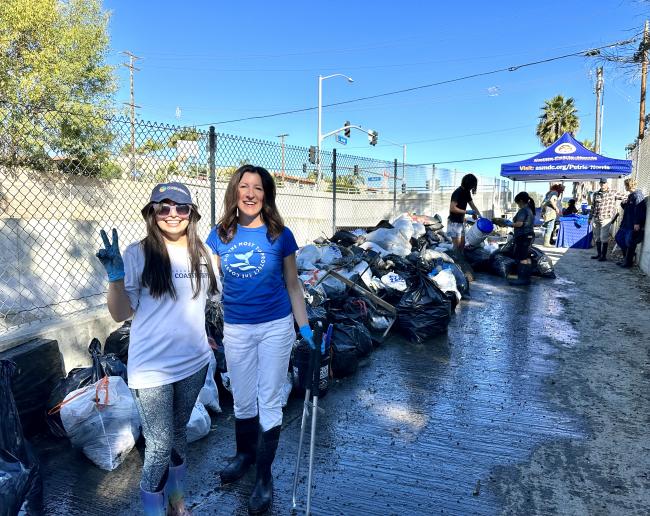
Costa Mesa, CA — Assemblywoman Cottie Petrie-Norris and Orange County Coastkeeper hosted a river channel cleanup on Saturday, December 16, at the Santa Ana-Delhi Channel. Volunteers collected nearly 3,100 pounds of trash ranging from large bulky items, plastic containers and other debris that would otherwise end up in Upper Newport Bay and the Pacific Ocean. This is the largest amount of debris collected at any Orange Coast Coastkeeper volunteer cleanup event in the organization’s history.
“It’s remarkable how much trash flows through Orange County channels and into the Pacific Ocean,” said Assemblywoman Cottie Petrie-Norris (D-Irvine). “Our river channel cleanups help prevent all sorts of debris from polluting coastal waters and threatening marine ecosystems, including Upper Newport Bay. Thank you to the amazing volunteers who made this record event a success and continue to demonstrate their commitment to protecting our environment and coastline.”
Orange County waterways collect trash from inland communities via the county’s rivers and storm drains. If not intercepted, the pollution impacts our oceans and shorelines. Community cleanups are one of the best ways for the public to help prevent this debris from polluting the sea and harming marine wildlife. Over the years, hundreds of volunteers have participated in Assemblywoman Petrie-Norris’ beach and channel cleanups helping remove over 11,300 pounds of debris from the waterway and along the Orange County coast, including this weekend’s record cleanup event.
"Protecting our coastal waters from pollution starts on land, and channel cleanups make a huge impact," said Irene Cordero, cleanups coordinator at Orange County Coastkeeper. "These cleanups are often the last opportunity to remove trash and debris before it harms our marine life. The Santa Ana-Delhi Channel leads directly into Upper Newport Bay, Southern California's largest remaining natural estuary, where inland freshwater and coastal saltwater mix. Thanks to the hard work of our volunteers, we intercepted nearly 3,100 pounds of trash before it could harm this critical coastal ecosystem."